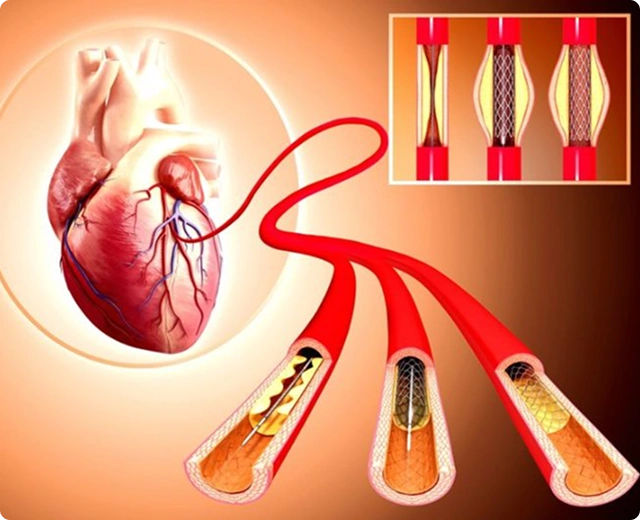
PTCA A Safe, Non-Surgical Treatment for Heart Blockages
Percutaneous Transluminal Coronary Angioplasty (PTCA), also known as coronary angioplasty or balloon angioplasty, is a minimally invasive procedure designed to treat blocked arteries caused by coronary artery disease. It involves using a balloon to widen narrowed vessels, improving blood flow, and reducing symptoms such as chest pain. PTCA offers an effective, non-surgical solution for restoring heart health without the need for open-heart surgery.
When is PTCA Recommended?
Heart blockage treatment becomes essential when symptoms like chest pain, breathlessness, fatigue, or reduced activity tolerance indicate blocked coronary arteries. The diagnosis is confirmed by stress testing, ECG, or coronary angiography. For patients with limited diseases, PTCA is preferable to surgery because it allows for faster recovery and is less risky. The primary distinction between angioplasty and bypass surgery is complexity. PTCA treats single or double-vessel illness, whereas bypass surgery treats severe multi-vessel blockages.
Step-by-StepPTCA Procedure Explained
A structured overview of the PTCA procedure, highlighting each critical stage for effective heart blockage treatment.
Cardiac Catheterization
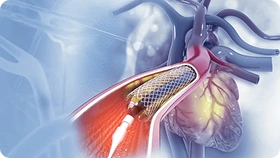
This involves inserting a tiny catheter via a blood artery in the groin or wrist and carefully guiding it to the coronary arteries.
Balloon Angioplasty
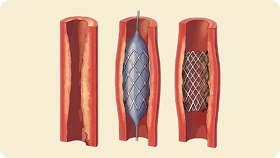
A tiny balloon attached to the catheter's tip is inflated at the site of the blockage, compressing plaque and expanding the artery to increase blood flow.
Angioplasty with Stent Placement
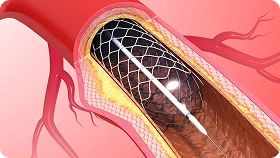
In most situations, a stent is used to keep the artery open, hence improving long-term outcomes and lowering the risk of restenosis following the PTCA operation.
Benefits ofPercutaneous Transluminal Coronary Angioplasty
Non-Surgical Heart Treatment
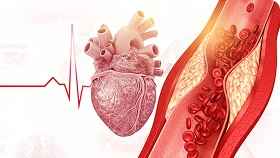
Provides a less invasive alternative to open-heart surgery, reducing surgical risks.
Restores Blood Flow
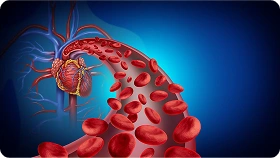
Improves oxygen and nutrient supply to the heart muscle, relieving chest pain, fatigue, and other symptoms.
Faster Recovery

The minimally invasive approach ensures shorter hospital stays, quicker return to daily activities, and lower complication rates.
Heart Attack Prevention

Significantly lowers the risk of future cardiac events by treating narrowed or blocked coronary arteries effectively.
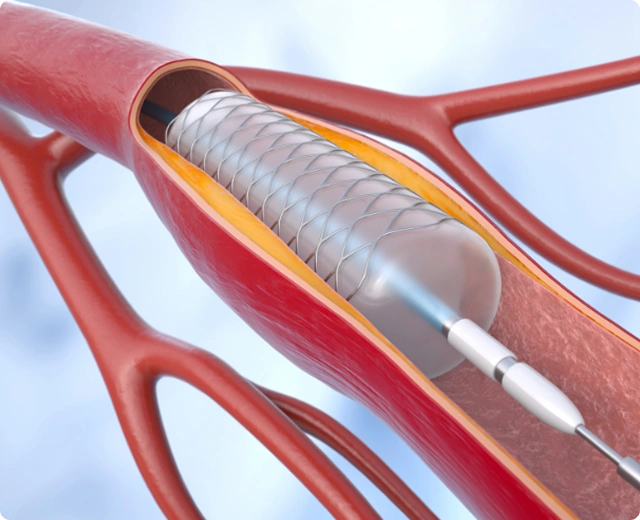
PTCA vs Bypass Surgery
PTCA is an excellent alternative to bypass surgery for patients with limited or less complex blockages. In contrast, angioplasty and bypass surgery differ significantly in approach, where angioplasty is less invasive and suited for localized issues, whereas bypass surgery addresses multiple or severe blockages more comprehensively.
Why Choose Us for PTCA?
Expertise in Coronary Interventions
Highly experienced interventional cardiologists specializing in complex PTCA procedures for various coronary conditions.
Advanced Technology
Utilization of cutting-edge stents, intravascular imaging, and precision-guided techniques to ensure procedural success and safety.
Personalized Treatment Plans
Customized approach based on comprehensive diagnostic tools such as angiography and stress testing.
Comprehensive Post-Procedure Care
Continuous patient monitoring, rehabilitation support, and risk factor management for long-term outcomes.
Global Accessibility
Services available in Chennai, Mumbai, Dubai, and Oman.
Our Locations
Discover morefrequently asked questions
-
The effectiveness of PTCA can extend for many years; however, the exact duration is dependent on the patient's health, lifestyle, and adherence to medical advice. Stent patency is usually monitored with regular follow-ups.
-
Angioplasty is generally well-tolerated with minimal discomfort. Mild pressure may be felt during balloon inflation, but sedation and local anesthesia reduce any significant pain.
-
To prevent restenosis, post-angioplasty care involves eating a heart-healthy diet, exercising regularly, quitting smoking, managing stress, and adhering strictly to prescribed medications.








